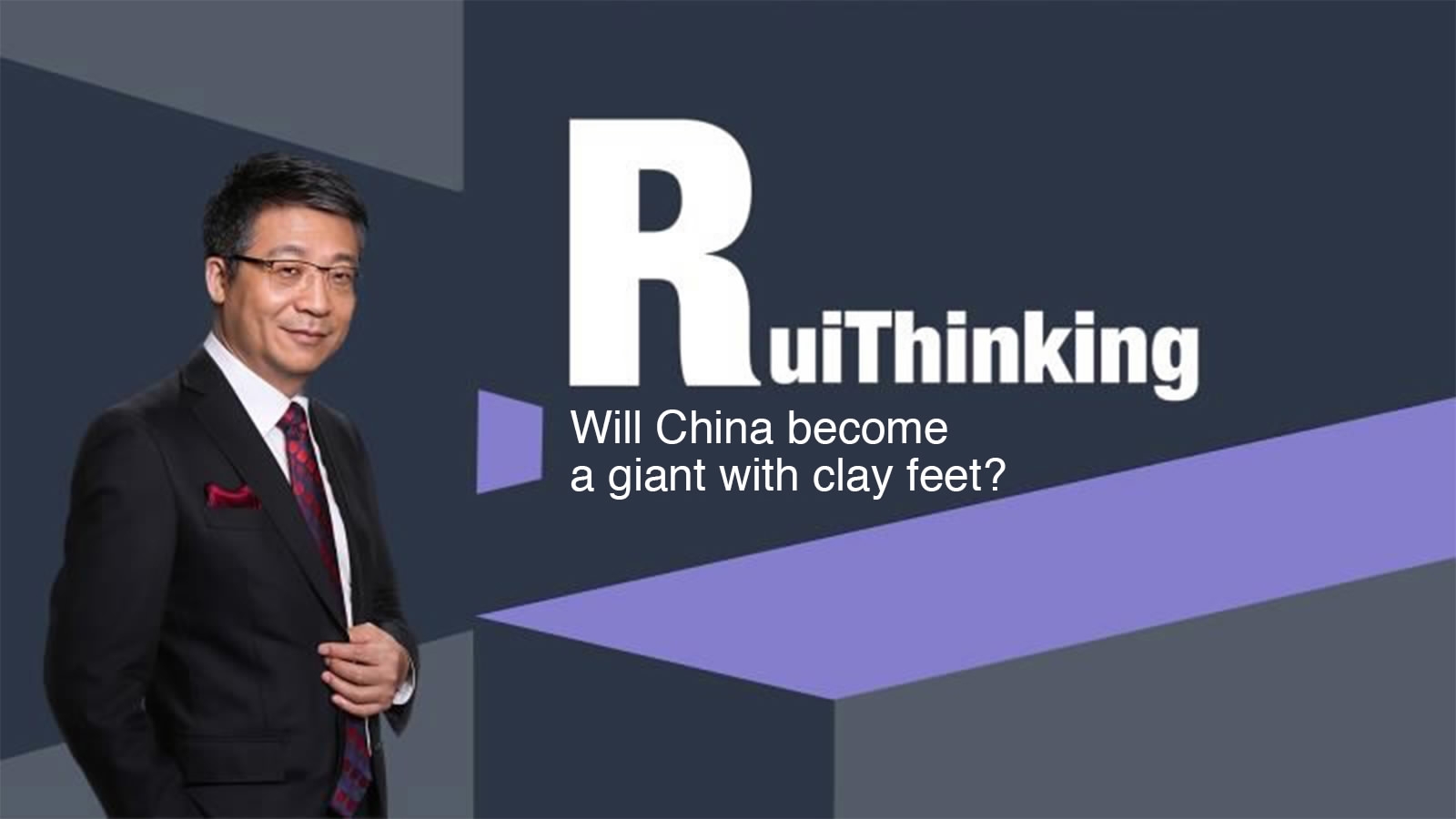
Opinions
11:38, 03-Feb-2018
RuiThinking: Will China become a giant with clay feet?
By CGTN's Yang Rui

China is rebuilding itself.
This year marks the 40th anniversary of the country’s opening up, a testament to decades of economic progress. However, we have to be philosophical about China’s speed, and play it safe.
Back in 1978, China began to rebuild its economy and society. Consider Shenzhen. What used to be a small village of fishermen quickly became a bustling hub of advanced manufacturing and financing, a convergence of ambition and dreams of young Chinese.
The Shenzhen speed wowed the whole world by building one floor each day. Soon, the skyline of the village was transformed into a modern metropolis with hundreds of high-rise buildings on the doorstep of Hong Kong. The people of Shenzhen proudly took themselves as New Yorkers and created the slogan “Time is life, efficiency is cash.” This was a wake-up call for a red communist China in the early 1980s.
But our miracle soon turned into a nightmare of environmental decline and overcapacity based on astronomical local debts. Controversially we have entered into an era of alleged assertiveness and self-inflation with the rise of nationalism. American media and lawmakers, Democrats and Republicans alike, started to re-assess our influence and their old policy of engagement, taking China and Russia as strategic competitors.
Deng Xiaoping said we should keep a low-profile to avoid antagonizing the sole superpower. But, a collision course is looming. We have bitter memories of a Great Leap that caused starvation and political upheavals. Is our attention span as short as the Americans who beat the Soviet Union but stepped into two long, bloody wars after 9/11?
What should our roadmap and speed be? We must draw lessons from the US’ gunboat policies. President Xi Jinping says that we should seek to transcend the old doom of being a hegemonic power when rising fast economically and militarily. We also have to bear in mind Prof. Graham Allison’s warning about the Thucydides's Trap. But how can we take over the top spot with digital technology and our pioneering pursuit of AI when our per capita GDP lags far behind?
A recent article on China’s experiment with the Maglev railway that reduces the travel time between Beijing and Shanghai to only two hours has triggered a debate about the China speed. No doubt our high-speed railway, e-commerce, online payment system as well as bicycle-sharing lead the world, and hundreds of startup companies are talking about the advent of the blockchain era.
Meanwhile, venture capital is starting to pour into this area. Transactions can be executed instantly with blockchain. But can China slow down to ease the worries of our alleged strategic competitors? Not sure.
However, Mr. Liu He, chief economic adviser to President Xi Jinping, said at this year’s winter Davos that China is prepared to develop qualitatively. We have to first of all avert systematic financial risks and to complete poverty alleviation in about five years. We need to have an environmentally friendly land for our children. In addition, China is getting old before many of us get rich. The Chinese speed has to be moderated and compromised based on careful planning. No rush, no anxiety and no self-inflation.
Last but not least, soul and spirituality must come in tandem with material consumerism. Otherwise China will look like a giant with clay feet.

SITEMAP
Copyright © 2018 CGTN. Beijing ICP prepared NO.16065310-3
Copyright © 2018 CGTN. Beijing ICP prepared NO.16065310-3